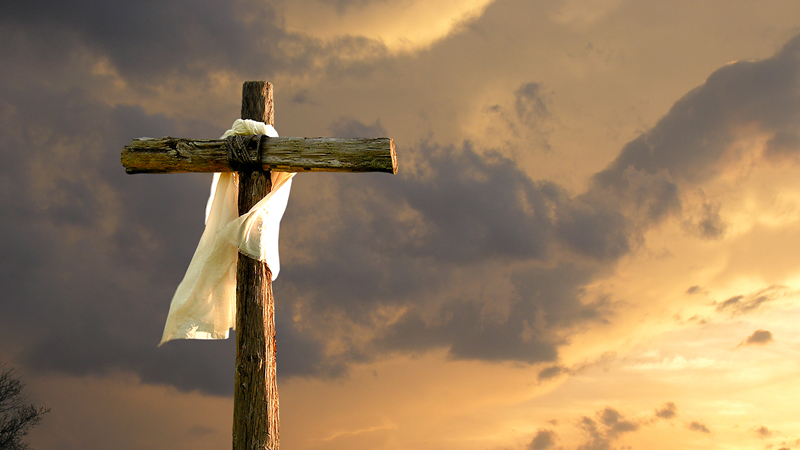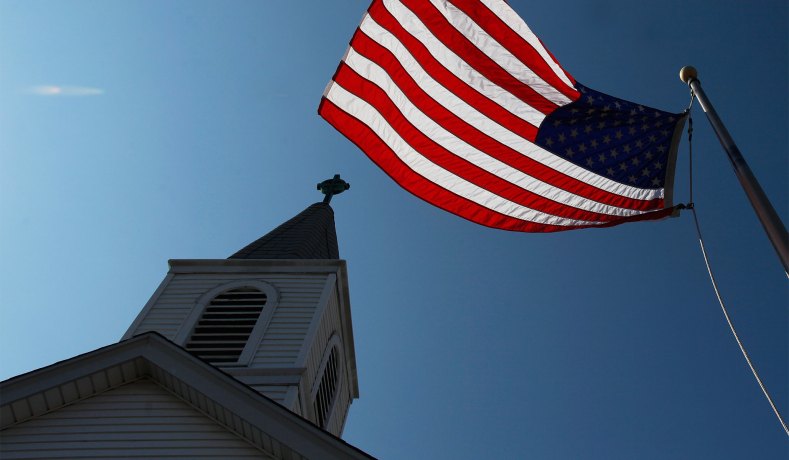~ Redeemer Lutheran Church, Gresham, OR ~
~ Friday Session~
Text: Romans 13:1-10

People love to be free of the burden of authority. School kids count the minutes before the bell on the last day of school. College freshmen rejoice to be free of their parents’ rules when they move into their own space. Women who have lived in Muslim countries marvel at the freedom of dress and activity that they can enjoy in this country. We like freedoms, not submission; liberty, not authoritarianism.
That’s why this country was founded, right? We declared our independence from England so that we could be free to enjoy life, liberty, and the pursuit of happiness. We built freedom into the Bill of Rights with the free exercise of religion, speech, and the press. In fact, we’re so accustomed to celebrating freedom, people get in an uproar at the slightest hint of curtailing freedom.
It’s not a far journey before supposed freedom turns into anarchy. A simplistic understanding of freedom and the pursuit of individual liberty, would seem to say we can throw off any authority we don’t deem worthy. Children can mouth off and disobey their parents because they think they’re little free people. Citizens can rant and rave about the horrible job their elected officials are doing and use their personal life as an excuse to disrespect them. Members of a congregation can get riled up against their pastor because he doesn’t meet their expectations or he preached against their pet sins, and force him to leave.
But God has a Word for us:
“Let every person be subject to the governing authorities. For there is no authority except from God, and those that exist have been instituted by God. 2 Therefore whoever resists the authorities resists what God has appointed, and those who resist will incur judgment. 3 For rulers are not a terror to good conduct, but to bad. Would you have no fear of the one who is in authority? Then do what is good, and you will receive his approval, 4 for he is God’s servant for your good. But if you do wrong, be afraid, for he does not bear the sword in vain. For he is the servant of God, an avenger who carries out God’s wrath on the wrongdoer.”
“He is God’s servant for your good.” God is doing good to us by the authorities that He has set in place. In a country with an elaborate democratic process, we might think it was our choice or that “millions of illegal votes” put an official in power. But it was really God, working out of sight. As the Prophet Daniel told the pagan king Nebuchadnezzar, “He changes the times and the seasons; He removes kings and raises up kings.”[1]

The point is that the authorities which exist are appointed by God for our good. They protect us from evil and loss, like fighting wildfires, telling people when to evacuate, and helping cities rebuild after a hurricane. They bring justice and punish those who act wickedly and those who disobey, putting criminals in jail and garnishing the wages of those who don’t pay their taxes.
But this doesn’t just apply to civil authorities. God gives authorities for your good in other circles of our lives, all covered by the Commandment, “Honor your father and your mother.” Before there ever was a government, God set up the family—fathers and mothers to nurture, admonish, and train their children. This, the willful child forgets when he doesn’t want to obey the command to clean his room—without his parents (or sometimes grandparents), he wouldn’t have a room.
It also applies in the church, as God gives spiritual leaders for our good. God sends men with the Words of eternal life to teach, reprove, correct, and train in righteousness.[2] But complacent Christians forget the Lord and His good purposes in this man. They squabble over human opinions and in the end cast off the burden of having a pastor to their great spiritual detriment.
But God does not just bark orders from heaven because He can. He shows us that these authorities are for our good by living under them Himself. “In the fullness of time, God sent forth His Son, born of woman, born under the Law, to redeem those under the Law.”[3]
He submitted to His parents, even to Joseph who was only His father by marriage: “And he went down with them and came to Nazareth and was submissive to them.” (Luke 2:41-51)
Jesus also submitted Himself to the church authorities of His day, orderly participating in synagogue worship. Even while He preached against the false teaching of the Scribes and Pharisees, He admonished us to obey our leaders: “The scribes and the Pharisees sit on Moses’ seat, 3 so do and observe whatever they tell you, but not the works they do.”[4] But ultimately, He submitted to appearing before the Sanhedrin to be charged as a blasphemer.

He submitted to civil authorities when He appeared before King Herod and Governor Pilate, and even confessed before Pilate, “You would have no authority over me at all unless it had been given you from above.”[5]
Even though He was innocent in every respect, He suffered as a lawless man: one who strikes his parents, one who rants and raves against God and His Church, one who leads uprisings and starts riots in the streets. And He was suffered under Pontius Pilate, was crucified, died, and was buried.
But so were you, who are baptized into Him. You, who have not honored your parents and other authorities, have not loved and cherished them, but instead have angered, grieved them, and given them sleepless nights. Because Christ your Lord stood in your place, suffered in your place under the full weight of the Law, you are forgiven. And “Blessed are those whose lawless deeds are forgiven, and whose sins are covered; blessed is the man against whom the Lord will not count his sin.”[6]
Because of that, instead of being burdened by all the ways we have abused freedom, we are free to do this:
8 Owe no one anything, except to love each other, for the one who loves another has fulfilled the law. 9 For the commandments, “You shall not commit adultery, You shall not murder, You shall not steal, You shall not covet,” and any other commandment, are summed up in this word: “You shall love your neighbor as yourself.” 10 Love does no wrong to a neighbor; therefore love is the fulfilling of the law.
As people who have been exonerated by the highest Authority, raised from dead works, you are free to “honor [your parents and other authorities], serve and obey them, love and cherish them.”[7] “Therefore one must be in subjection, not only to avoid God’s wrath but also for the sake of conscience.” (Rom. 13:5) Your conscience has been washed clean by the blood of Christ. So, you are free to love the law enforcement agents, judges, and elected officials. You are free to love and cherish your parents at home and teachers in school. You are free to serve this congregation and obey your pastor as the Lord’s servant. Because we have been redeemed and renewed, we can see and give thanks to God for all of these, imperfect as they may be at times, because over it all God is working for the good of those He has called to His eternal kingdom. Amen.

[1] Daniel 2:21
[2] 2 Timothy 3:16
[3] Galatians 4:4
[4] Matthew 23:2-3
[5] John 19:11
[6] Romans 4:7-8, quoting Psalm 32:1-2
[7] Small Catechism, 4th Commandment







